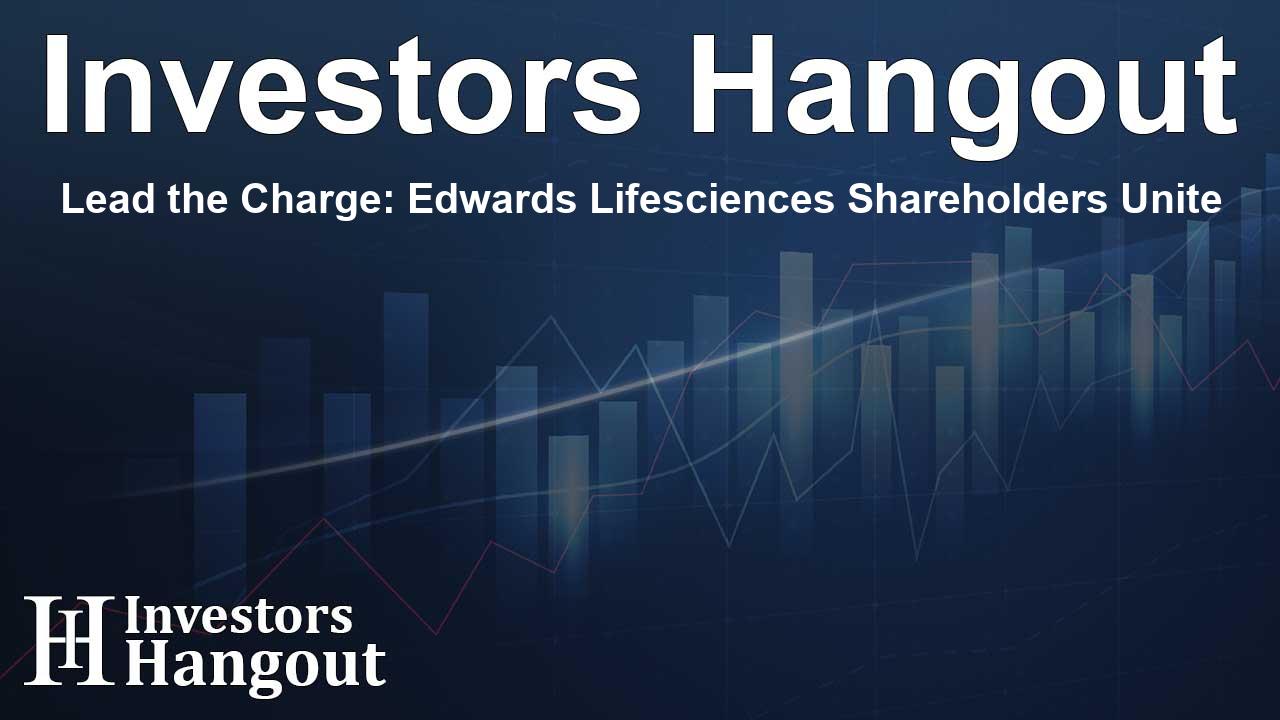Lead the Charge: Edwards Lifesciences Shareholders Unite

Understanding the Class Action for Edwards Lifesciences Investors
If you are an investor in Edwards Lifesciences Corporation (NYSE: EW), it is crucial to be aware of your rights and options, especially in the wake of substantial losses. Recent developments have opened the door for investors to come together and pursue a collective legal approach toward holding the company accountable for misleading statements. The opportunity to take a stand as a lead plaintiff is now within reach for those who have acquired Edwards Lifesciences securities during the defined Class Period.
Class Action Lawsuit Details
The class action lawsuit against Edwards Lifesciences, identified as Patel v. Edwards Lifesciences Corporation, revolves around the company’s potential misrepresentation of financial performance and growth projections. This case is coming forth as investors seek to recover losses incurred between specific dates. The allegations assert that during this period, the company and its executives may have delivered false impressions about their revenue outlook and future growth, which could have led to uninformed investment decisions.
Core Allegations Against Edwards Lifesciences
The lawsuit poses significant accusations regarding the integrity of financial communications issued by Edwards Lifesciences. It alleges that the defendants misled investors regarding key growth factors. For instance, TAVR—a principal product of Edwards Lifesciences aimed at treating structural heart disease—was reported to be flourishing, while underlying risks appeared to be blatantly understated. Investors believed in a trajectory of growth that may not have been sustainable.
The Impact of Financial Disclosures
The situation reached a pivotal moment when Edwards Lifesciences disclosed less favorable results than expected in their second quarter of 2024. This announcement not only disappointed stakeholders but also resulted in a significant drop in stock price. Such developments can dramatically affect investor confidence and shareholder value, warranting a need for collective action.
The Role of Lead Plaintiffs in Class Actions
A lead plaintiff plays a vital role in class action lawsuits. Under the Private Securities Litigation Reform Act of 1995, any investor who suffered losses during the Class Period can step forward to take on this responsibility. This individual represents the interests of all affected investors and is instrumental in guiding the lawsuit’s direction. What’s important to note is that serving as a lead plaintiff does not limit an investor’s potential recovery; they can still share in any financial recompense awarded to the class.
About Robbins Geller Rudman & Dowd LLP
Robbins Geller Rudman & Dowd LLP is recognized as a formidable player in the realm of securities litigation. With a remarkable track record, the firm has secured substantial monetary relief for investors in numerous securities fraud cases. Their impressive history illustrates a commitment to advocating for shareholder rights, proving that they are prepared to take on the complexities of large-scale financial misconduct.
Extensive Track Record
With an extensive history of recovery amounting to billions in securities-related class actions, Robbins Geller’s efforts have significantly benefited investors across the board. Their expertise showcases a profound understanding of the legal landscape, which positions them as a critical ally for individuals seeking justice against corporate malfeasance.
What Investors Should Do Next
For individuals looking to participate in this class action, it’s essential to consider the options available. Engaging with legal counsel, understanding the implications of your investment decisions, and deciding whether to step forward as a lead plaintiff are all crucial steps in this process. It is a time to unite and ensure that the voices of shareholders are heard, emphasizing the need for transparency and accountability in corporate governance.
Frequently Asked Questions
What is the deadline to join the class action lawsuit?
Investors have until a specified date to apply for lead plaintiff in the case.
What are the core allegations in this lawsuit?
The lawsuit alleges misleading financial communications by Edwards Lifesciences regarding their product growth and revenue projections.
How can I participate as a lead plaintiff?
Investors who acquired shares during the Class Period may apply to serve as lead plaintiff by providing relevant information to legal counsel.
What is the role of Robbins Geller Rudman & Dowd LLP?
This law firm represents investors in securities fraud lawsuits and plays a significant role in the current case against Edwards Lifesciences.
Will my investment recovery be affected if I'm not a lead plaintiff?
No, all investors who qualify can share in any recovery, regardless of whether they serve as lead plaintiff.
About Investors Hangout
Investors Hangout is a leading online stock forum for financial discussion and learning, offering a wide range of free tools and resources. It draws in traders of all levels, who exchange market knowledge, investigate trading tactics, and keep an eye on industry developments in real time. Featuring financial articles, stock message boards, quotes, charts, company profiles, and live news updates. Through cooperative learning and a wealth of informational resources, it helps users from novices creating their first portfolios to experts honing their techniques. Join Investors Hangout today: https://investorshangout.com/
Disclaimer: The content of this article is solely for general informational purposes only; it does not represent legal, financial, or investment advice. Investors Hangout does not offer financial advice; the author is not a licensed financial advisor. Consult a qualified advisor before making any financial or investment decisions based on this article. The author's interpretation of publicly available data shapes the opinions presented here; as a result, they should not be taken as advice to purchase, sell, or hold any securities mentioned or any other investments. The author does not guarantee the accuracy, completeness, or timeliness of any material, providing it "as is." Information and market conditions may change; past performance is not indicative of future outcomes. If any of the material offered here is inaccurate, please contact us for corrections.